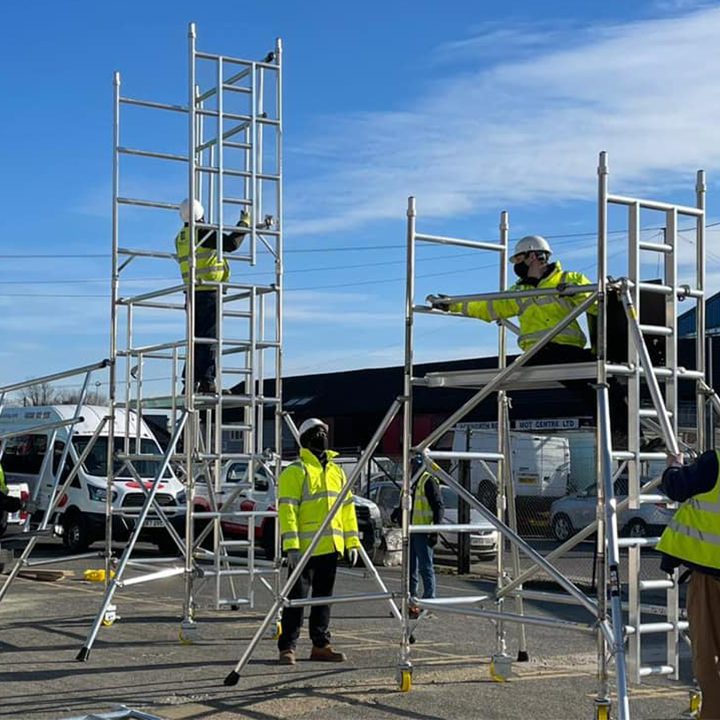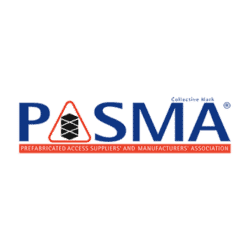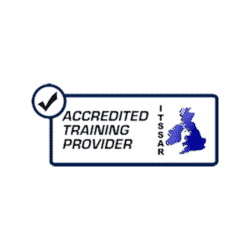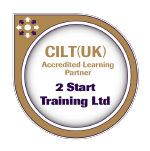The accrediting body PASMA, also known as Prefabricated Access Suppliers’ and Manufacturers’ Association, provide and govern the industry standard for training. This includes:
- Low-level Access
- Towers for Users
- Combined Towers for users & low-level access
- Working at heights

About the Prefabricated Access Suppliers’ and Manufacturers’ Association
Founded in 1974, their standards and best practices are recognised across the UK, South Africa, Southeast Asia, and the Middle East. They help in setting the standards for working at heights.
If an employee is required to work at heights in the workplace, the employer should ensure the employee has undergone suitable competent training. This training should also be with an accredited training provider.
The organisation define the standards required in order to meet the minimum competent level as an operator of mobile access towers. Training providers undergo an initial application process to become an approved PASMA training provider.
All instructors working for 2 Start are further required to complete separate accredited instructor courses and instructor assessment.
Adequate training reinforces the importance of ensuring competency when working at heights. This is also as well as understanding the necessary health and safety factors. These are presented through theory and practical based discipline.
You can Check an operators card to ensure someone is registered. Every card and Certificate confirms the ‘level’ to which the cardholder has been trained to adhere to.

There are multiple membership categories
- Manufacturing Member
- Training Member
- Hire/Dealer Member
- Hire Assembly Member
- Associate Member
Our Accreditation
2 Start are a proud approved training member of PASMA. This means that as an accredited training provider, we can deliver training which meets a nationally recognised standards to students. We had to not only be an approved training centre, but also meet the training facilities requirements.
When you, a student, wishes to complete PASMA training with us, it will typically begin with classroom-based learning. This encompasses the knowledge needed to complete the practical aspect of the training. This, of course, depends on the training course booked.
Typical classroom learning will consist of meeting the instructor. They will go through the training procedure outlined for the course. This will also include the modules that will be covered.
You will also be asked questions which could spark group discussions. This is done to not only help you stay focussed and engaged, but to also help you and your fellow class mates feel more confident prior to completing the theory assessment.
If you are completing training which involves a practical segment, you will be expected to apply your theory-based knowledge into practice. You will also cover the practical aspects as a team. This will involve you erecting and dismantling the equipment.
PASMA state that each of their training courses is ”… delivered by a qualified instructor who is a subject matter expert on access towers.”
Becoming a training member means that as a training provider, 2 Start can supply comprehensive training courses. These courses will provide a minimum competency level upon successful completion. This meets the accrediting bodies standards.
PASMA defines themselves as “…the organisation that knows mobile towers, and cared about the people who use them.”
Choose a reputable and trusted training provider, like 2 Start, when sourcing your PASMA training.
Why Choose 2 Start?
Reputable
High Pass Rates
Established in 2008
Industry Leading Training Provider
Independently Owned
6 Dedicated Training Centres
VIEW COURSESTrusted
4.9 Star Rating on Google Reviews
DVSA Approved 3a Examiners
DVSA Approved Test Centres
APAR Approved Training Provider
RLI Certified LGV Instructors
BOOK NOWAccredited
Accredited Instructors & Courses
Regular Accrediting Body Audits
Exceptional Audit Pass Marks
Listed With 9 Accrediting Bodies
Verifiable Accreditations
THE TEAM









